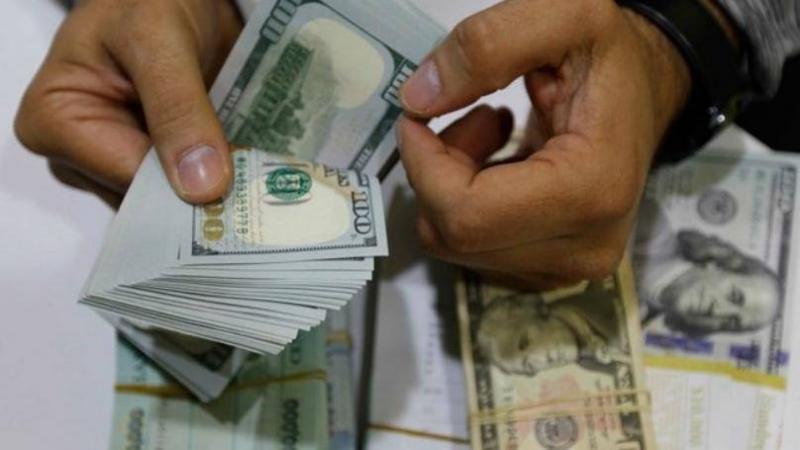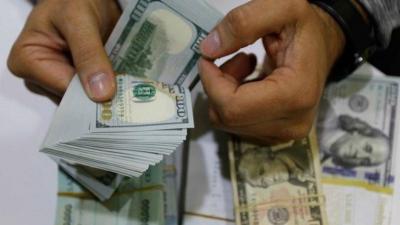If we are still able to buy some of the medications available in pharmacies with the Lebanese pound today, and purchase our necessary food items with the pound as well, will we die of hunger or illness tomorrow if we reach a stage where we are forced to pay exclusively in dollars at pharmacies, supermarkets, and shops, alongside being told "leave here" if we do not possess dollars?
**Fuels**
More than one source following the developments of the Lebanese crisis confirms that the extent of the collapse in Lebanon is not solely determined by the exchange rate of the informal market dollar, but rather by monitoring the limits and effects of what could happen regarding fuels, their pricing, and their enforcement by de facto means. Fuels are completely imported (100%) in a country governed by a "killer" financial chaos, where all industrial activities, export and import movements, shipping and transportation operations, and nearly all economic activities are connected to fuels and their prices, which in turn determine the prices of all other goods and imports. Exclusively in dollars?
Since we are in the "perfect" country of chaos, we ask: will some people merely settle for demanding that the price of a liter of gasoline be set in dollars, while giving consumers the option to pay in either dollars or Lebanese pounds at the daily exchange rate, or will they adopt a worse future scenario of enforcing payment exclusively in dollars, based on discussions about the difficulty of adhering to Lebanese law that does not allow pricing goods in any currency but the Lebanese pound due to the instability of the daily exchange rate?
If this happens in the fuel sector, what will be the fate of payments in all other Lebanese sectors, in a state where the laws are not respected, and where the justification for breaching the law exists, which is the instability of the exchange rate, with the daily losses it imposes on importers and traders?
**10 Billion**
Economic expert Dr. Louis Hbeika clarified that "removing dollar pricing for imported goods from abroad such as gasoline, which requires dollars for import, becomes increasingly difficult in a country like Lebanon, which imports between 80% and 90% of its needs." He noted in a statement to "Akhbar Al-Youm" that "Lebanon's dollar reserves are continuously depleting, to the extent that it is said that the remaining reserves in the Central Bank have reached 10 billion dollars, a figure that can no longer be fallen below, considering the need to retain it for other matters in the country as well."
**Choosing for People**
Hbeika emphasized that "one way to find a solution might be to set the price of a liter of gasoline in dollars, but with the necessity of offering the citizen the choice to pay either in dollars or the equivalent in Lebanese pounds according to the exchange rate. A certain formula can be agreed upon to prevent chaos at gas stations regarding the calculation of the Lebanese pound worth in relation to the dollar price at the time of payment. However, maintaining the choice for people to pay in either dollars or pounds is essential."
He added: "The same applies to the purchase of other completely imported goods from abroad, which require dollars for their import, providing people with the option to pay in dollars or its equivalent in Lebanese pounds based on the exchange rate, to avoid causing losses to anyone. As for those that can be manufactured locally, using all materials sourced from within as well, they can remain priced in Lebanese pounds."
**The Law**
In response to a question about the risks of reaching a stage where one cannot purchase anything in Lebanon except by compelling people to pay for it exclusively in dollars, under the pretext of the continued collapse of the Lebanese pound, Hbeika answered: "This is not legal. The Law on Currency and Credit confirms the right to pay in Lebanese pounds, in a manner that is enforced against any violator of the law and prevents them from refusing. No one, regardless of the excuses, is allowed to compel people to pay only in dollars. They must be given the option to pay in either pounds or dollars."
He concluded: "In the event of a violation, the customer has the right to file a complaint, which may lead to the closure of the establishment that refuses the Lebanese pound, potentially reaching the point of imprisonment for the owner (of the establishment), depending on the circumstances and the offense. A Lebanese citizen is obliged not to refuse the Lebanese pound."




